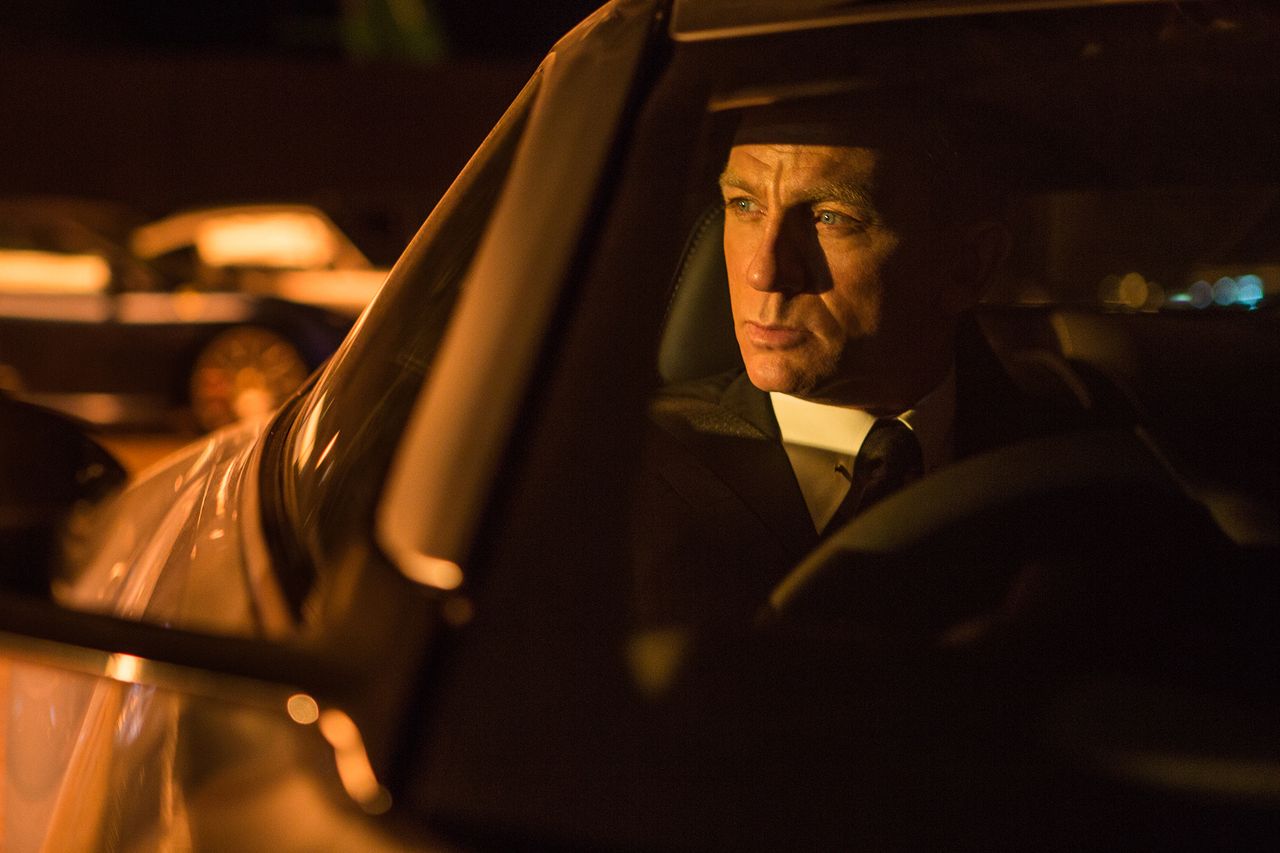Spectre is a flabby, botched attempt to honor 007's legacy
The latest James Bond movie is so obsessed with the franchise's past that it fails to put forward anything new


Is it possible to un-reboot a franchise? Spectre, the 24th entry in the James Bond franchise (and the fourth to star Daniel Craig), isn't just disappointing on its own terms. It's disappointing because it erodes what made Casino Royale's total reboot of the 007 franchise so fresh and interesting in the first place.
There were harbingers of returning director Sam Mendes' old-is-new approach to 007 in Skyfall, which reintroduced Q, Moneypenny, a male M, and even the Goldfinger Aston Martin DB5 by the time the credits rolled. But those throwback elements have devoured Spectre altogether, bringing it closer to the tropes that the Daniel Craig era was explicitly launched to upend. Going back to the old ways doesn't necessarily mean going through the motions, but it seems like that's what happened in Spectre.
That sense of cheerless duty — while appropriate for a spy who has devoted his life to Queen and Country — has somehow infected Spectre itself. Daniel Craig, who was so convincing in his grief and rage over Vesper Lynd in Casino Royale and Quantum of Solace, doesn't seem capable of playing anything but cool efficiency. Mr. Hinx (Dave Bautista), a new henchman that's clearly aiming for a slot in the Jaws/Oddjob pantheon, falls totally flat. Monica Bellucci, the much-vaunted "Bond girl" that's actually in Bond's age range, gets little more than a cameo. And one "surprise" villain is so transparent that Spectre practically sneers at itself during the reveal.
Subscribe to The Week
Escape your echo chamber. Get the facts behind the news, plus analysis from multiple perspectives.

Sign up for The Week's Free Newsletters
From our morning news briefing to a weekly Good News Newsletter, get the best of The Week delivered directly to your inbox.
From our morning news briefing to a weekly Good News Newsletter, get the best of The Week delivered directly to your inbox.
But none of that compares to the void at the center of the film's overarching narrative. Spectre's primary villain is Franz Oberhauser, played by Christoph Waltz, a two-time Oscar winner who seems hopelessly miscast in everything that's not a Quentin Tarantino movie. (To be fair to Waltz, Oberhauser's weird little asides about meteorites and cuckoos don't exactly stack up against Tarantino's punchy monologues.)
Oberhauser is the shadowy leader of a shadowy group called Spectre — so shadowy, in fact, that he literally leads a meeting while sitting in the shadows. And here's where we get to the really spoiler-y material, so if you'd prefer not to know anything about Spectre's third-act reveals, you can stop reading now.
All set? No, Christoph Waltz isn't merely Franz Oberhauser. He's Ernst Stavro Blofeld, 007's greatest and most fearsome enemy, as pretty much everybody guessed when they cast Christoph Waltz in a James Bond movie called Spectre. A legal dispute has kept Blofeld out of the 007 franchise since 1981's For Your Eyes Only, but he remains Bond's most iconic villain (even if modern audiences know him best through Austin Powers' only marginally exaggerated parody, Dr. Evil). Shortly after Skyfall was released, MGM finally acquired the rights to use Blofeld again, and Spectre doesn't waste any time building up the qualities that established the character as 007's Moriarty; by the end of the movie, we've met his fluffy white cat and seen him acquire the facial scar worn by Donald Pleasence's Blofeld in You Only Live Twice.
Spectre does add one new wrinkle to Blofeld, and it's a big one: his motivations for going after 007 are personal, not political. In his childhood, Blofeld's father took the recently orphaned James Bond under his wing, and encouraged Blofeld to think of Bond as a "brother." (It should really be a red flag when your big twist unintentionally recalls the twist at the end of Austin Powers in Goldmember.) Blofeld, seething with jealousy, killed his father and faked his own death, receding into the shadows. In the decades since, he has somehow built a criminal empire so vast it can accurately be described as existing "everywhere." And what has Blofeld done with all that power? Obsessively orchestrated every single terrible thing that has happened to Daniel Craig's 007. That's right: Spectre recasts the entirety of Daniel Craig's run as 007 by insisting that all of Bond's hardships in Casino Royale, Quantum of Solace, and Skyfall were a direct result of Blofeld's careful machinations.
You can feel the movie's four credited screenwriters struggling to squeeze this brand-new, all-powerful organization into the previous films' continuity. It's a simple enough retcon for villains like Casino Royale's Le Chiffre and Quantum of Solace's Dominic Greene; since they already belonged to shadowy criminal organizations, they can be recast as agents of Spectre without it feeling too weird. But it makes much less sense for a maniac like Skyfall's Raoul Silva, who was explicitly motivated by his personal desire for revenge against M.
It would be much easier to overlook these logical holes if Waltz's Blofeld didn't land with such a thud. In the right film, Waltz's toothy grin and chipper singsong accent can be deeply menacing. In Spectre, he's about as terrifying as his fluffy white cat — dwarfed by 007 in stature, strength, ingenuity, and resources. Most of all, Blofeld is diminished by his obsession with Bond, which reduces the world's greatest and most ruthless political manipulator to a crank with weird daddy issues.
It's a shame that this is the Blofeld we're stuck with now, because there's never been a better time for the 007 franchise to bring Blofeld back. They just chose the wrong version of the character. In Ian Fleming's original novels, Blofeld's main arc is spread out over a trilogy. After Bond foils two of Blofeld's carefully orchestrated plots in Thunderball and On Her Majesty's Secret Service, Blofeld retaliates by gunning down Bond's car as he drives off to his honeymoon — and Bond's new wife Tracy dies in the attack. The final Blofeld story, You Only Live Twice, is as dark a 007 novel as Fleming ever wrote. Shaking himself out of a near-alcoholic stupor because of his even greater thirst for blood, Bond tracks Blofeld to Japan, then strangles him and blows up his castle.
Throughout Ian Fleming's novels, the most frightening thing about Blofeld is his ability to disappear. Every time Bond encounters him, he's living under a different name, with a totally different appearance. Once he's a fat man with short black hair and pitch-black eyes; once he's a thin man with long silver hair and green eyes; once he's intimidatingly bulky, with a mustache. Bond is haunted by the idea that he'll never really know if he's killed Blofeld or some kind of body double, and the uncertainty nearly drives him insane. That was a chilling idea in the 1960s, when Fleming wrote those novels, and it's no less compelling in 2015, when non-state actors are the biggest threat to national security, and when plastic surgery and digital manipulation have never been more accessible.
It's possible, if not likely, that Spectre is the first chapter in a very, very loose rendition of that Ian Fleming arc. Spectre ends with Blofeld alive, on the verge of incarceration, while Bond drives off into the sunset with Madeleine Swann (Léa Seydoux) — the daughter of Mr. White (Jesper Christensen), a Spectre agent Bond first went toe-to-toe with in Casino Royale. If this is Daniel Craig's final outing as 007, as he has hinted in several promotional interviews, it's an uncharacteristically happy sendoff. But if Craig returns in the role, it's easy to imagine the next Bond film doing its own version of the On Her Majesty's Secret Service story, with a bloodthirsty 007 seeking revenge on a Blofeld who manages to have Madeleine killed.
Despite the ineptitude of Spectre, a version of that story might even work — but whatever happens to the 007 franchise next, some fresh ideas should be brought to the table. Less than a decade ago, Casino Royale offered a sleek, stripped-down reboot of the franchise that successfully shed 20 films worth of baggage. Just three films later, Spectre is flabby with the weight of the past. Maybe it's time for another bold creative mind — be it actor or writer or filmmaker — to push 007 back toward the future.
Sign up for Today's Best Articles in your inbox
A free daily email with the biggest news stories of the day – and the best features from TheWeek.com
Scott Meslow is the entertainment editor for TheWeek.com. He has written about film and television at publications including The Atlantic, POLITICO Magazine, and Vulture.
-
 6 charming homes for the whimsical
6 charming homes for the whimsicalFeature Featuring a 1924 factory-turned-loft in San Francisco and a home with custom murals in Yucca Valley
By The Week Staff Published
-
 Big tech's big pivot
Big tech's big pivotOpinion How Silicon Valley's corporate titans learned to love Trump
By Theunis Bates Published
-
 Stacy Horn's 6 favorite works that explore the spectrum of evil
Stacy Horn's 6 favorite works that explore the spectrum of evilFeature The author recommends works by Kazuo Ishiguro, Anthony Doerr, and more
By The Week US Published